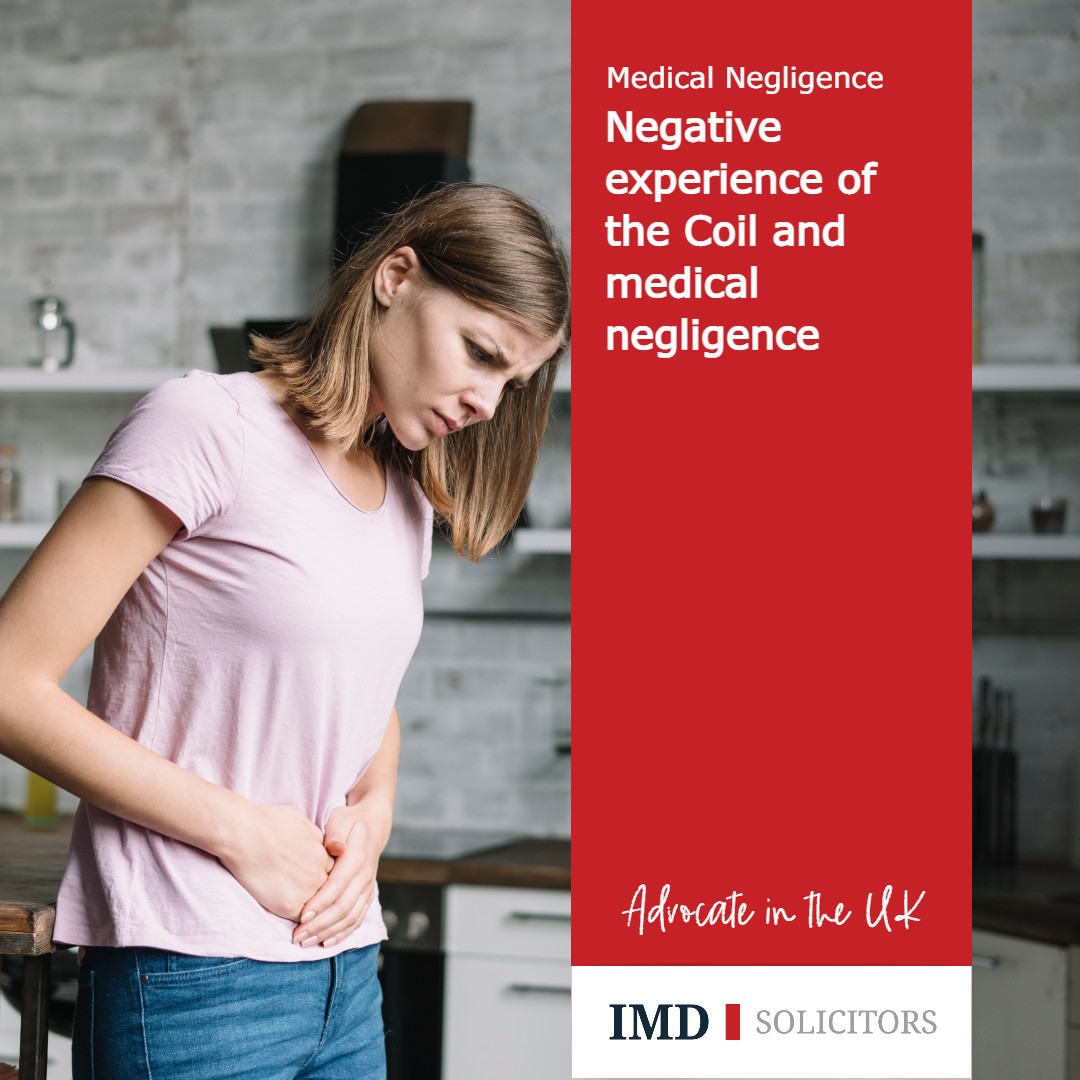
There was a radio interview recently on the BBC when one of their presenters talked about their agonising experience of the coil fitting. This will have resonated with many women who have had a painful experience.
Painful and distressing experiences during and after the coil fitting is something I have heard often from some of our clients. Often they come to us as a last resort because they have not been able to talk to a health professional. We can only assist where there is a medical negligence claim and sometimes we cannot help them but we do our best to signpost them to seek help which can also include psychiatric help.
A coil is an intrauterine device (IUD) and a contraceptive. It is a very effective contraceptive and for many women it works quite well, and protects against pregnancy. The coil once inserted can stay for years.
I recently advised a lady who following the coil fitting was in pain for a few months before she saw a Gynaecologist to have the coil removed at a private clinic. She was advised that she had developed a nasty infection and that was the cause of her distressing symptoms. She had difficulty walking and constant leg pain. She said she could not focus on her job. The pain was debilitating and would not ease even with painkillers. She felt depressed because the pain was relentless. Being in pain and often not being able to tell anyone or even know what the cause of the pain might be can be emotionally hard. What compounded this lady’s agonising experience was the fact that due to the pandemic she felt she was not taken seriously and was told to take painkillers to deal with the pain.
The actual process of fitting a coil and removing it takes no more than 5 minutes however, some women have a shocking experience. We have a lot of clients for whom English is not their first language. It is quite important the health professional fitting the coil explains to the patient what the process involves and what pain relief options they can use. Where English is not the first language there is an added complexity. Patients may not understand what is being said or patients may not be able to express how they are feeling if the fitting is distressing and painful.
Most health professionals and medical professionals are sensitive, kind and understanding. The patient’s fears and concerns about what is an intimate procedure needs to be managed carefully so the patient feels they have some degree of control. The patient needs to feel they can ask the clinician to stop if the fitting becomes unbearably painful.
The percentage of women who have a terrible experience is mercifully low but those that do suffer in silence need to know that they have a right to seek help. They also need to be reassured that their concerns will not be dismissed.
There are a few pain relief options before the coil is fitted and women who are new to this can discuss this with their health care professional before going ahead. These include-
The coil is effective against pregnancy but it does not stop sexually transmitted infection. Some women may experience heavier periods and few may go on to develop an infection afterwards. Those who have concerns should discuss this with their G.P. or health professional. The article is written to help women so that they are better prepared to discuss any concerns they may have beforehand.
If you would like to have an informal chat with our Clinical Negligence experts in confidence to see if you have a viable claim then please complete the contact form on our website and we will give you a call back at a time convenient to you or please call/ contact Daxa Patel, Clinical Negligence Partner & Solicitor by contacting us on 0330 107 0107 or email clinicalnegligence@imd.co.uk. Once we are contacted by you, one of our helpful team members will contact you. Please note we have a team of lawyers who speak many languages including English, Polish, Romanian, Russian and Lithuanian.
This article is for general information only and does not constitute legal or professional advice. Please note that the law may have changed since this article was published.